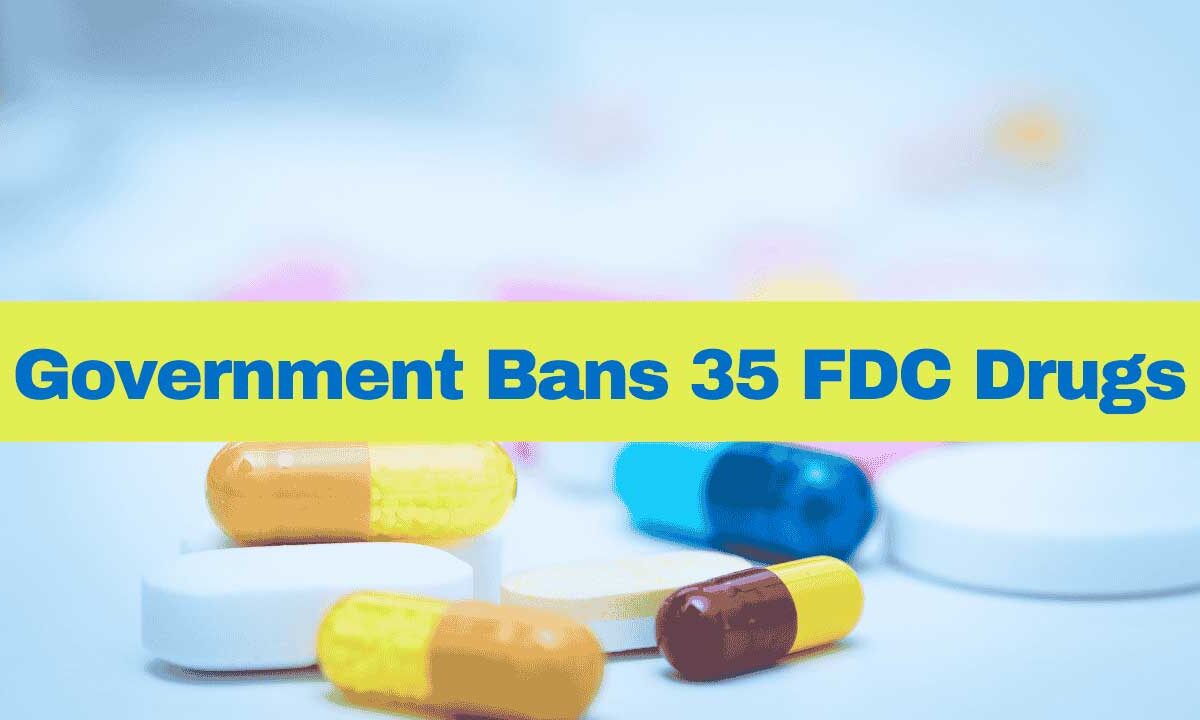Government Bans 35 Unapproved Fixed-Dose Combination Drugs Including Painkillers, Nutrition Supplements, and Anti-Diabetics
Indian government bans 35 unapproved fixed-dose combination drugs, including painkillers, anti-diabetics, and supplements. Learn about the CDSCO’s safety crackdown.

The Indian government has banned the manufacture and sale of 35 unapproved fixed-dose combination (FDC) drugs, including painkillers, nutrition supplements, and anti-diabetics, citing severe public health risks. The Central Drugs Standard Control Organisation (CDSCO) issued the directive on April 11, 2024, under the Drugs and Cosmetics Act 1940, targeting FDCs lacking safety and efficacy validation.
Also Read: Dr Pal Calls Out India’s Love for Dolo 650, Netizens Add ‘Don’t Forget Disprin!’
Table of Contents
Government Bans 35 Unapproved Fixed-Dose Combination Drugs to Safeguard Public Health
What Prompted the Ban on 35 Unapproved FDC Drugs?
Fixed-dose combination (FDC) drugs contain two or more active ingredients in fixed ratios. While effective when approved, unregulated combinations risk:
- Unpredictable drug interactions
- Adverse reactions due to untested formulations
- Long-term health complications
The CDSCO discovered that 35 FDCs, including painkillers, anti-diabetics, and supplements, were licensed without central approval, violating the NDCT Rules 2019.
Key Details of the Government Ban
- Affected Categories:
- Painkillers
- Anti-diabetic medications
- Nutrition supplements
- Directive: Immediate halt on production, distribution, and sales.
- Regulatory Focus: Ensure compliance with the Drugs and Cosmetics Act 1940 nationwide.
CDSCO’s Directive to State Drug Controllers
In a letter, Drugs Controller General of India (DCGI) Dr. Rajeev Raghuvanshi mandated:
- Strict review of state-level drug approval processes.
- Revocation of licenses for the 35 banned FDCs.
- Uniform enforcement of NDCT Rules 2019 to prevent future violations.
The CDSCO highlighted that manufacturers relied on state-issued licenses, exposing gaps in regulatory oversight.
Why Are Unapproved FDC Drugs Dangerous?
- No Safety Checks: Skipped mandatory CDSCO evaluations.
- Health Risks: Increased likelihood of drug resistance, toxicity, and treatment failures.
- Legal Violations: Undermine national drug safety standards.
Timeline of Regulatory Actions Against Unapproved FDCs
- 2013: Initial warnings about unauthorized approvals.
- February 2024: Reminders to states to halt illegal FDCs.
- April 2024: Final ban on 35 high-risk drugs.
What’s Next for Drug Controllers?
- Immediate Enforcement: Block production and sales of banned FDCs.
- Tighter Approvals: Scrutinize new drug applications rigorously.
- Public Awareness: Alert healthcare providers and patients.
The government’s ban on 35 unapproved fixed-dose combination drugs, including painkillers, nutrition supplements, and anti-diabetics, marks a critical step toward aligning India’s drug regulations with global safety standards. By enforcing the Drugs and Cosmetics Act 1940, the CDSCO aims to eliminate untested medications and protect public health. Patients using affected drugs should consult doctors for alternatives.
